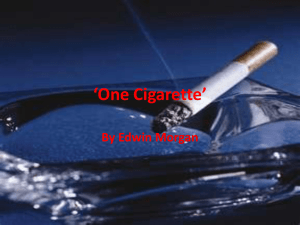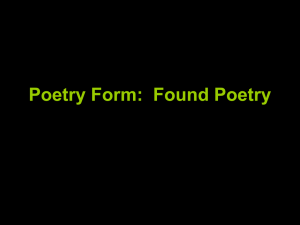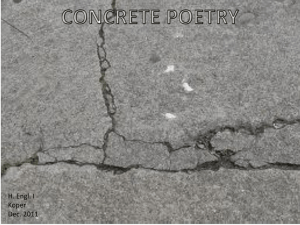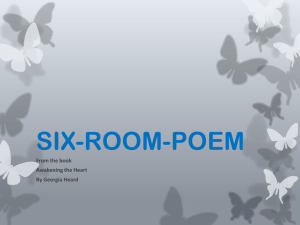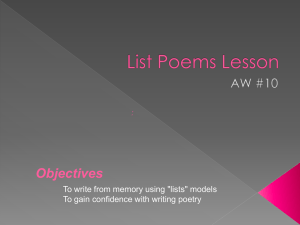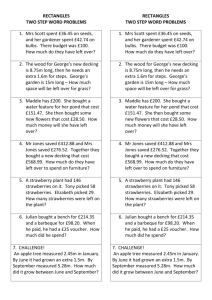Strawberries Intro`
advertisement
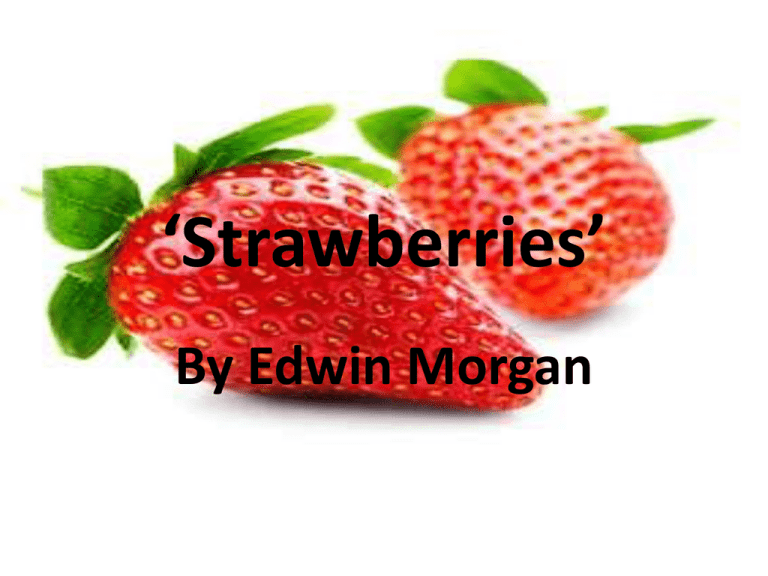
‘Strawberries’ By Edwin Morgan Learning Intentions • Form your first impressions of the poem ‘Strawberries’ • Show your understanding of the central concerns of the poem and how these are conveyed • Begin to analyse the key poetic devices used by Morgan in ‘Strawberries’ Edwin Morgan 1920 - 2011 • The poet Edwin Morgan was born in Glasgow and has lived there all his life. • He served in the British Army during the Second World War. • He worked all his life as a translator, lecturer and professor. • He has written plays as well as poetry. • His writes from a city point of view so that in ‘Strawberries’ he pictures the countryside in an energetic way. He dramatises a storm in the background. • Morgan's poetry often takes an original or unusual form. Strawberries While you eat your strawberries, think about: • What do strawberries make you think of? • What do you associate with strawberries? • What type of poem would you associate with this fruit? USE YOUR SENSES! Strawberries Listen to Edwin Morgan reading out his poem and begin to form your first impressions in preparation for I see, I think, I wonder. I See, I Think, I Wonder On your own, read over ‘Strawberries’ and begin to form your first impressions. As a group, fill out your I See, I Think, I Wonder sheets. I See, I Think, I Wonder I See = write down what you can see in the poem. For example: different poetic techniques etc. I Think = write down what you think is happening in the poem. For example: what is being described? Who do you think the speaker is? What emotions does this poem describe? Etc. I Wonder = write down any questions you have about the poem. Is there something you don’t understand? What issues does this poem raise in you? Summary The poet recalls a summer afternoon of intense love. He recalls sitting with his lover on the steps of a building outside a french window. The afternoon weather was warm and thundery. He and his lover were sitting close to each other, with his knees held inside his knees. The poet says... "Meeting [John Scott] in 1963 was probably the thing that unleashed most of the poems in the 1960s … All the love poems from the 1960s were started off by meeting him and were about him in various ways … Most of them, not every one exactly, but most of them did come out of things that actually happened. 'Strawberries' came out of eating strawberries on that French window, there in fact [points], from which you can see the Kilpatrick Hills, so that just comes from life if you like. It just happened really pretty well exactly as it is there. Most of them are rather like that, though in some cases a bit of imagination comes into it.” A reader says... "In its economy of setting and deceptive simplicity of expression, how evocative and sensuous it is from the outset, and how subtly sustained the alliterative pattern of 's' and 'st' sounds pinning its two-beat lines in place. But it is the last line which touchingly clinches things, both at a practical, almost mundane level and in conjuring up, in the intense heat, an alternative urgency. I sense in it a reminder of how moments of intimacy must be grasped, in the face not just of the elements but of mortality." Love Poetry Love is one of poetry’s enduring themes. The experience of love is, after all, the nearest most people get to complete happiness and fulfilment. Morgan’s love poems stand rather apart from the rest of his works. They give us glimpses of private life and domesticity which are notably absent elsewhere. However, these are glimpse only, because in other ways these are intensely private poems. The loved ones are never named or described in any detail, but always referred to as ‘you’ or ‘your’ with no indication of status. This vagueness does not detract from the effectiveness of the poetry. It seems, instead, to give it a universal quality, Understanding the poem Numbered Heads 1) Where and when is the poem set? 2) There are just two characters in the poem, the 'I' and the 'you' – what do we learn about each of them? 3) What aspects of the characters does the poet not describe, and how does this affect your reading of the poem? 4) What changes over the course of the poem? Techniques In groups, make a list of the techniques you think you could write about in the poem ‘Strawberries’. Techniques Structure Imagery Pathetic fallacy Tone Word choice Theme Symbolism Summary Yet a short summary of the poem and the themes you think you can analyse within it.




